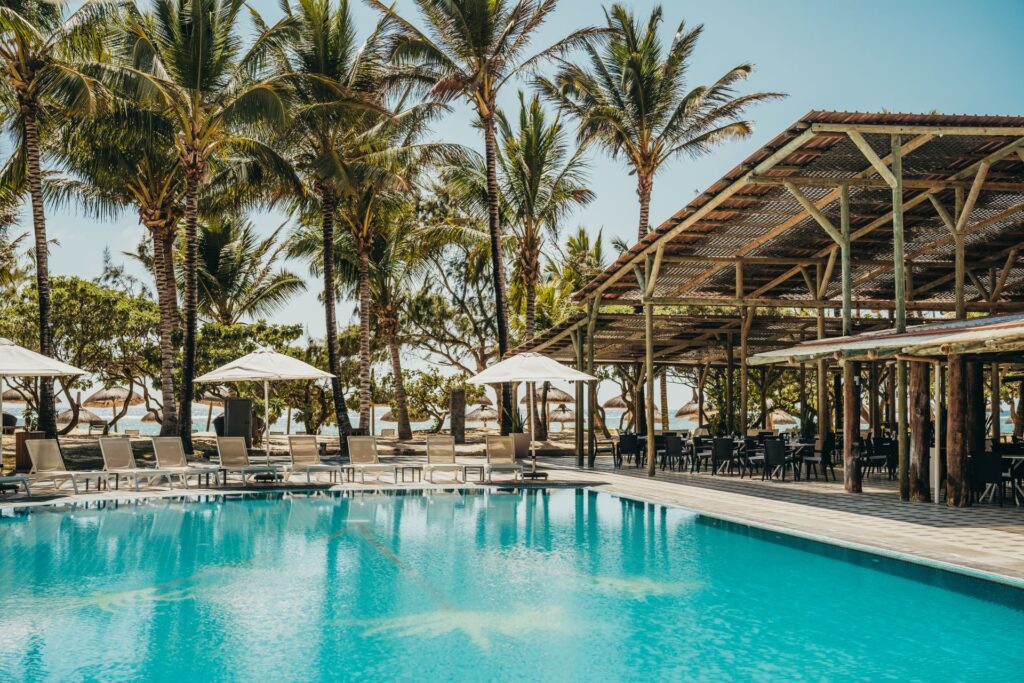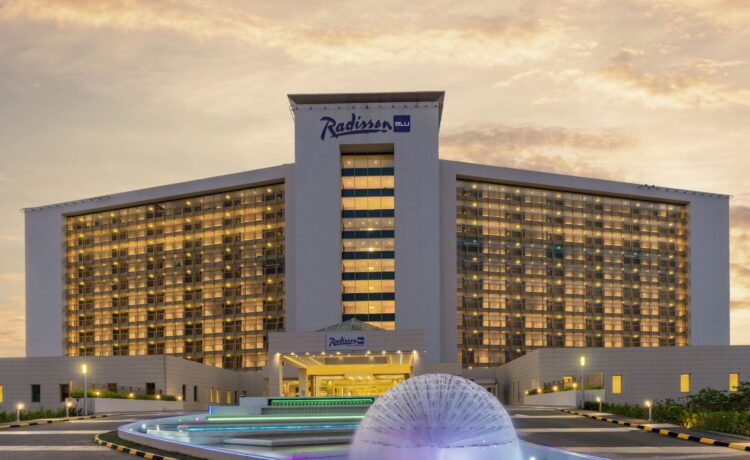Hotel giant’s aggressive expansion strategy creates ripple effects for investment, employment, and tourism development continent-wide

Radisson Hotel Group’s latest milestone—leading Africa in hotel openings for 2024—represents far more than corporate success. With 100 hotels now spanning over 30 African countries, the hospitality giant’s expansion strategy is creating substantial economic opportunities across the continent, from job creation to infrastructure development and increased foreign investment appeal.
Breaking New Ground in Untapped Markets
The Group’s recent entry into the Democratic Republic of Congo marks a significant moment for Central Africa’s economic development. Two major properties—Radisson Blu Hotel Kinshasa (opening late 2026) and Radisson Hotel Lubumbashi (mid-2027)—will inject substantial capital into one of Africa’s most resource-rich yet underserved hospitality markets.

For the DRC, these developments represent critical infrastructure that supports business travel, mining sector operations, and government activities. The Kinshasa property’s strategic location in the Gombe business district positions it to serve as a hub for international business, while Lubumbashi’s proximity to the country’s mining heartland makes it essential for the copper and cobalt industries driving much of the DRC’s economic growth.
Economic Impact Beyond Room Revenue
Radisson’s expansion model—focusing heavily on conversions rather than ground-up construction—demonstrates a particularly smart approach for African markets. Over the past 15 months, 1,000 of their 1,500 newly opened rooms came through conversions, a strategy that maximizes existing infrastructure while minimizing development costs and timelines.

This approach generates immediate economic benefits: existing properties retain their workforce while upgrading service standards, local suppliers gain access to international hospitality standards, and communities see faster returns on tourism infrastructure investments.
The ripple effects extend well beyond the hotels themselves. In Guinea, the recently opened Radisson Blu Hotel Conakry—completed just three months after signing—demonstrates how quickly quality hospitality infrastructure can transform a market’s international business appeal. The 282-room beachfront property immediately positions Conakry as a viable destination for regional conferences, corporate events, and international business travel.
Investment Confidence and Tourism Growth
International hotel chains serve as powerful signals to investors about market stability and growth potential. Radisson’s aggressive expansion—11 signings and 7 openings totaling over 2,000 rooms in 15 months—sends a clear message that Africa’s hospitality sector offers substantial returns despite global economic uncertainty.
This confidence cascades through related sectors. Airlines increase routes to serve business travelers, conference facilities expand to capture corporate events, and local service industries from transportation to catering see increased demand. The planned Radisson Blu Hotel & Apartments in Yaoundé, with its 1,350 square meters of meeting space, exemplifies how hospitality infrastructure can position cities as regional business hubs.
Strategic Market Development
Radisson’s ambitious targets reveal the scale of opportunity across key African markets:
- Morocco: 30 hotels by 2030, building on the country’s established tourism infrastructure and growing tech sector
- South Africa: 25 hotels by 2030, doubling current capacity to serve both business travel and the country’s massive domestic tourism market
- Nigeria: Continued expansion in Africa’s largest economy, supporting the country’s growing financial services and tech industries
These aren’t just hotel developments—they’re economic anchors that enable broader business activity and international connectivity.

Local Development and Skills Transfer
Beyond immediate construction jobs, international hotel operations create sustainable employment opportunities with clear career progression paths. Hotel management, culinary arts, hospitality technology, and customer service roles provide skills that transfer across industries, contributing to Africa’s broader economic development goals.
The conversion strategy particularly benefits local economies by upgrading existing properties and their workforces rather than displacing them. This approach builds local capacity while meeting international standards, creating a multiplier effect for service quality across entire markets.
Looking Forward: Infrastructure and Connectivity
Radisson’s expansion reflects and reinforces broader trends in African development. Improved aviation connections, digital infrastructure, and regional trade agreements are making business travel more efficient and appealing. Quality hospitality infrastructure both responds to and accelerates these trends.
As African economies continue diversifying beyond traditional resource extraction, service industries like hospitality become increasingly important for GDP growth, employment, and international connectivity. Radisson’s record expansion signals confidence that this transition is not only possible but profitable.
The Group’s commitment to “meaningful local engagement and long-term social impact initiatives” suggests understanding that sustainable hospitality growth requires genuine partnership with local communities—an approach that creates lasting economic benefits beyond tourism revenue.
For investors, policymakers, and business leaders across Africa, Radisson’s aggressive expansion offers a compelling case study in how international hospitality investment can serve as a catalyst for broader economic development. The question now is which other sectors will follow hospitality’s lead in recognizing Africa’s tremendous growth potential.








